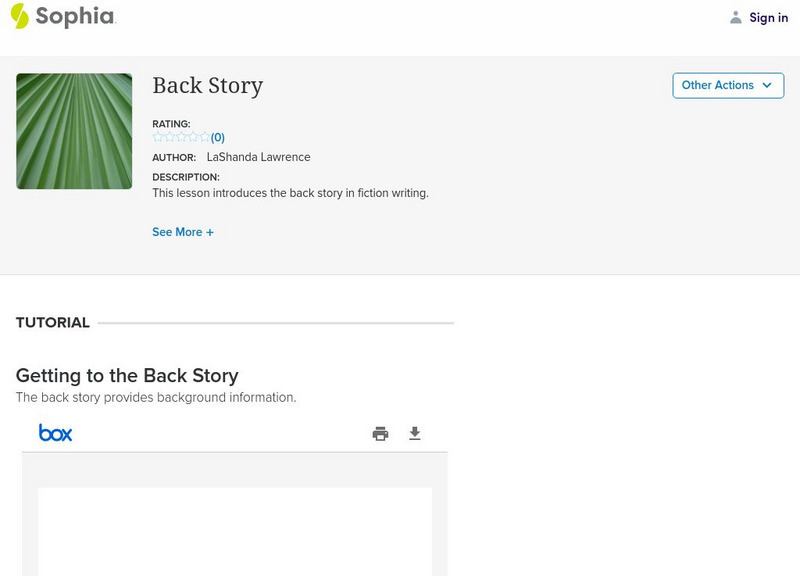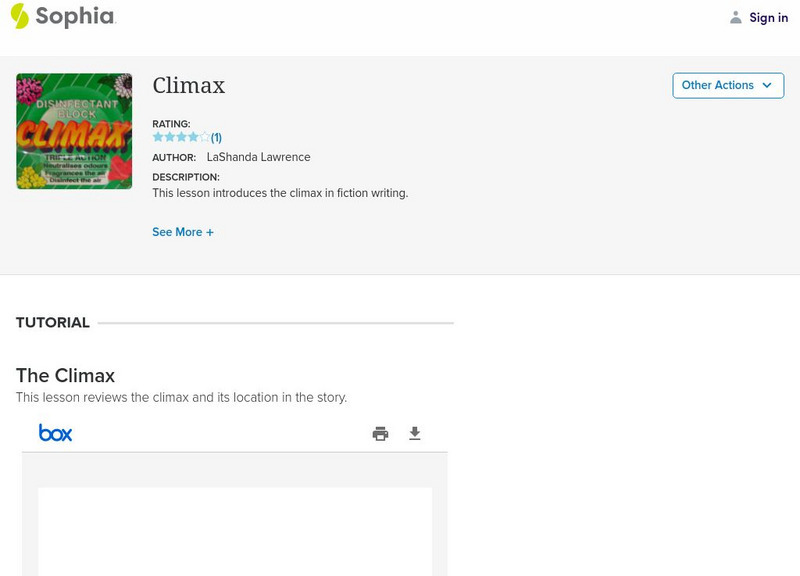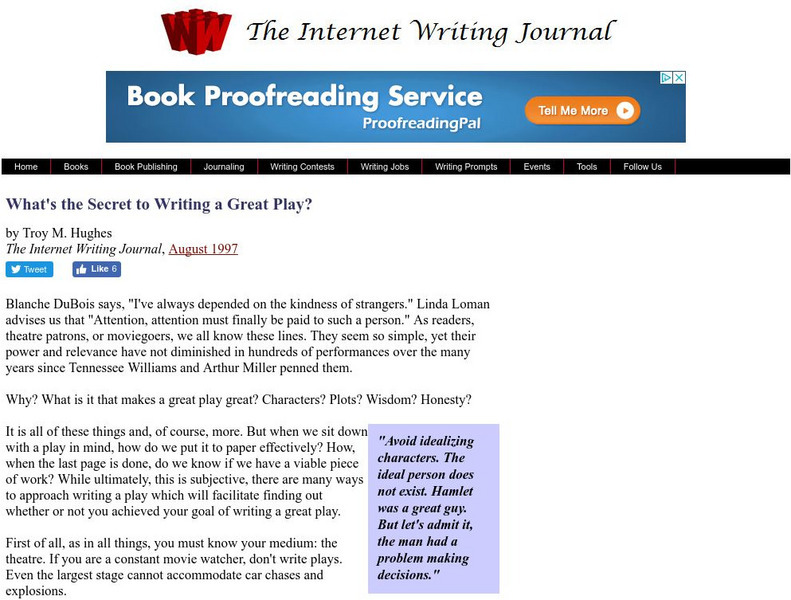Lumen Learning
Lumen: Boundless Communications: Using Life Experience (Narrative)
This lesson focuses on using narratives or stories in speeches. It discusses the importance of stories, the power of storytelling, and how and when to use stories in speeches.
Lumen Learning
Lumen: Reading and Interpreting Literary Texts: How to Analyze a Short Story
This lesson focuses on analyzing a short story including all of the elements of a short story such as setting, plot and structure, and characterization.
Literacy Head
Literacyhead: Writing Prompts: Images to Give Writers Ideas
Narrative images to encourage writers to write by exploring the themes and details of the art works.
Writing Fix
Writing Fix: Mechanical Monsters
In this lesson, students read the description of the mechanical dog from Ray Bradbury's Fahrenheit 451 and then work in groups to create and write descriptions of their own futuristic pet.
Texas Education Agency
Texas Gateway: Isolated Scenes and Plot Support (English Ii Reading)
Analyze various scenes in several works of fiction to see how those scenes affect the plot as a whole.
Texas Education Agency
Texas Gateway: Teaching: Prewriting and Planning Personal Narratives
This lesson focuses on prewriting and planning a personal narrative. The information can be used in all types of writing. It discusses brainstorming ideas, narrowing the focus, and developing the central idea. W.9-10.5 Writing Process,...
Other
Writing World: Four Ways to Bring Settings to Life
A great resource outlining four major ways to make settings appear more real and genuine in fiction. Deals with themes such as motion, experience, mood, and the senses. W.11-12.3d Sensory/precise lang narratives
Texas Education Agency
Texas Gateway: Isolated Scenes and Plot Support
Plots have momentum or a forward motion. In this lesson, we will isolate and discuss specific plot scenes from several works of fiction. You will learn how each scene moves the plot forward toward the resolution.
Texas Education Agency
Texas Gateway: Development of Characters Through Literary Devices
This lesson focuses on how writers develop characters through a variety of techniques: narration, dialogue, interaction with other characters, interaction with setting, and character's thoughts.
Other
Fiction Factor: The Importance of Setting
An interesting article concerning the importance of setting to any piece of fiction. Gives good information about how setting affects characters and "world-building."
Other
Short Story Elements
Geared toward high school students, this site contains many notes and links on the aspects of short story, figurative language, and figures of speech.
Ted Nellen
Cyber English (By Ted Nellen): Bildungsroman
This is a glossary entry for the term "Bildungsroman" referring to characteristics of a "Coming Of Age" type story. A link to more information is provided.
Writing Fix
Writing Fix: Serendipitous Personification for Stories and Descriptions
Students will use this writing prompt generator to create a personification story or description.
Other
Basic Literary Terms: The Novel and Short Story
This site has definitions of many parts of short stores including crisis, novel, short story, plot, exposition, theme, etc.
Other
How the Language Works: Fiction
This article discusses the characteristics of fiction and the expectations that readers have.
Other
How the Language Really Works: Novels and Stories
This brief article explains perspective, types of narrators, and the elements of fiction.
Other
Anthologies online.com: Understanding Theme and Premise
AnthologiesOnline.com provides this article Understanding Theme and Premise by Susan J. Letham, which provides tips on how to develop ideas for writing.
Houghton Mifflin Harcourt
Holt, Rinehart and Winston: Elements of Literature: The Short Story [Pdf]
A short group of exercises for students concerning the elements of a short story. Allows students to examine the major story elements, then apply those elements to a given piece of literature.
Sophia Learning
Sophia: Back Story
This lesson introduces the back story in fiction writing. W.11-12.3c Narrative Org
Sophia Learning
Sophia: Characters and Setting
This lesson introduces the connection between characters and setting in fiction writing.
Other
Tips for Writing a Great Play
Here's are a few guidelines for writing drama, including characters, setting and plot.
ClassFlow
Class Flow: Plot and the Most Dangerous Game
[Free Registration/Login Required] This flipchart teaches students about plot and gives examples from short story and also highlights vocabulary.
Annenberg Foundation
Annenberg Learner: Literature: Constructing Plot
This site has an explanation of the elements of a plot with clear examples. Click on "What goes into plot" for more information.


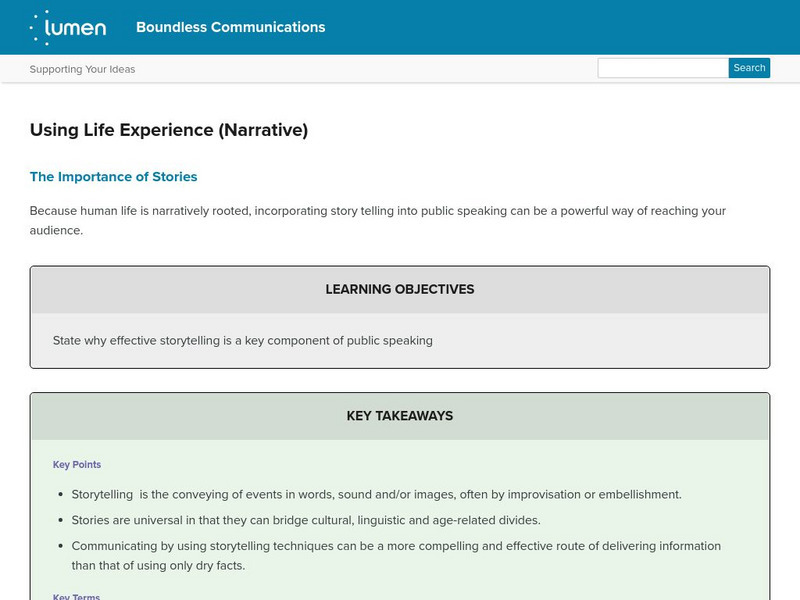


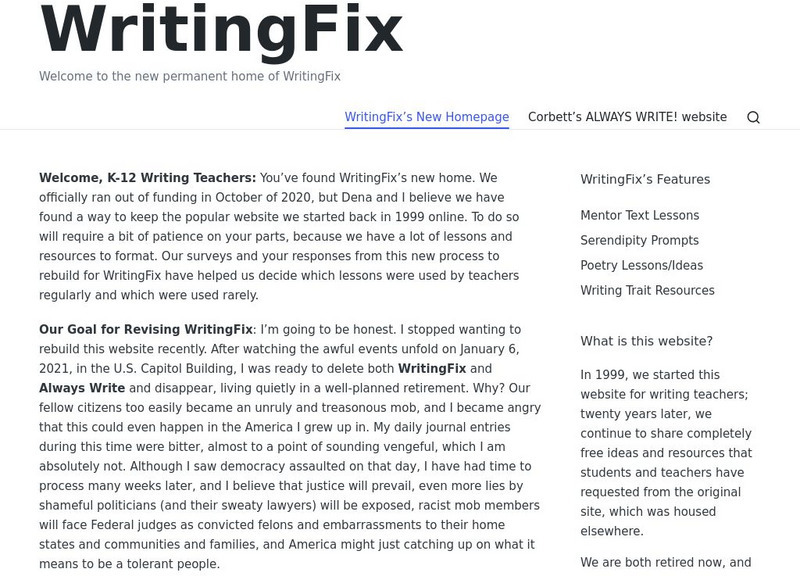

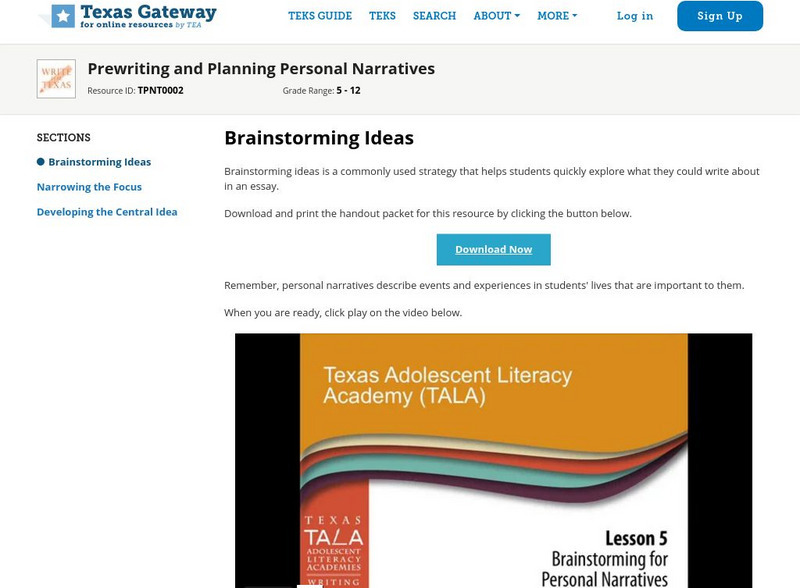
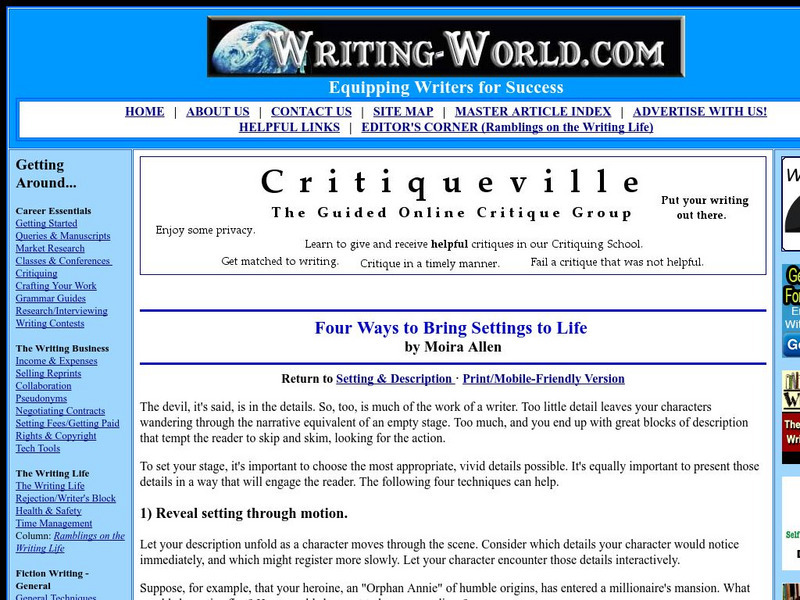

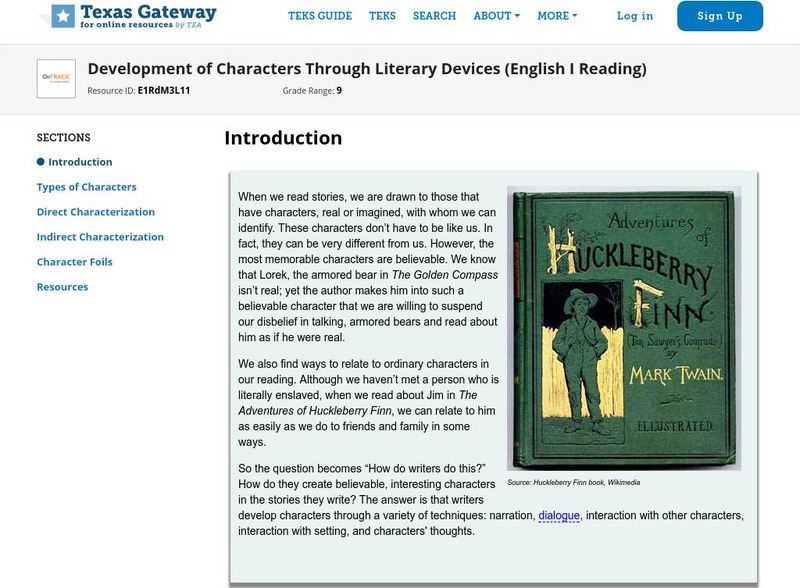
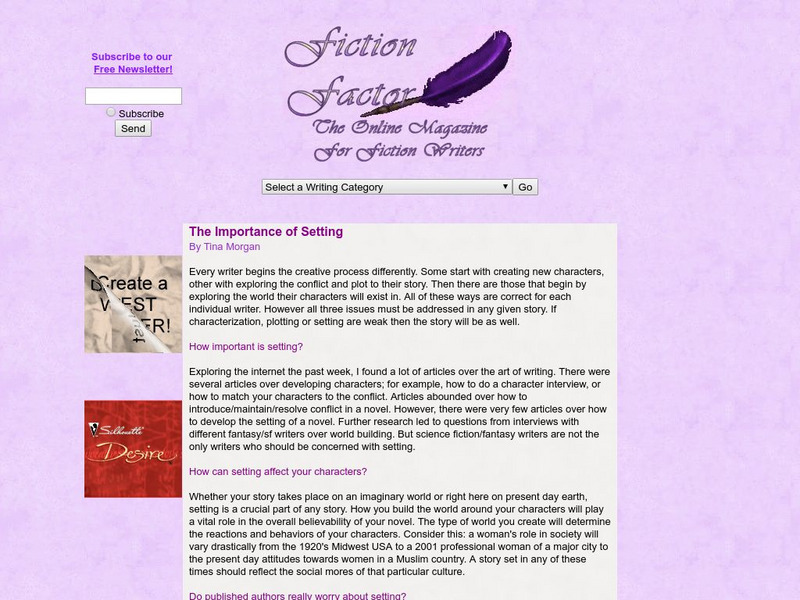




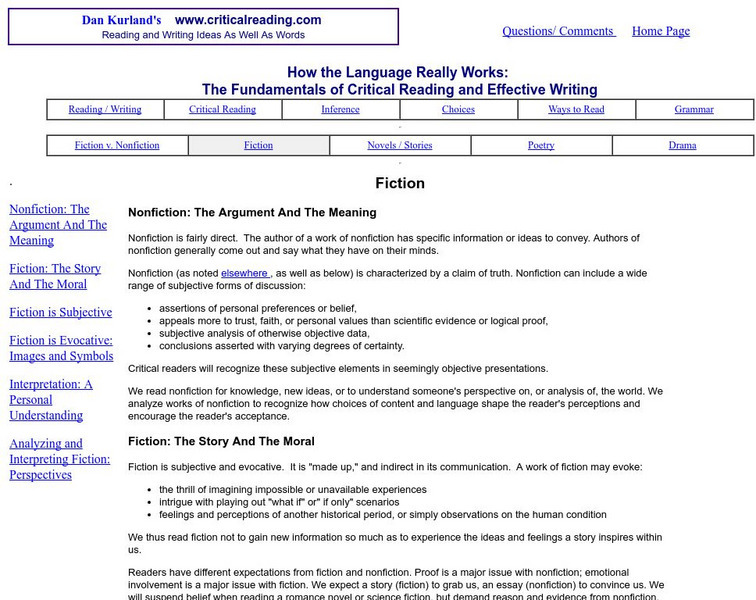
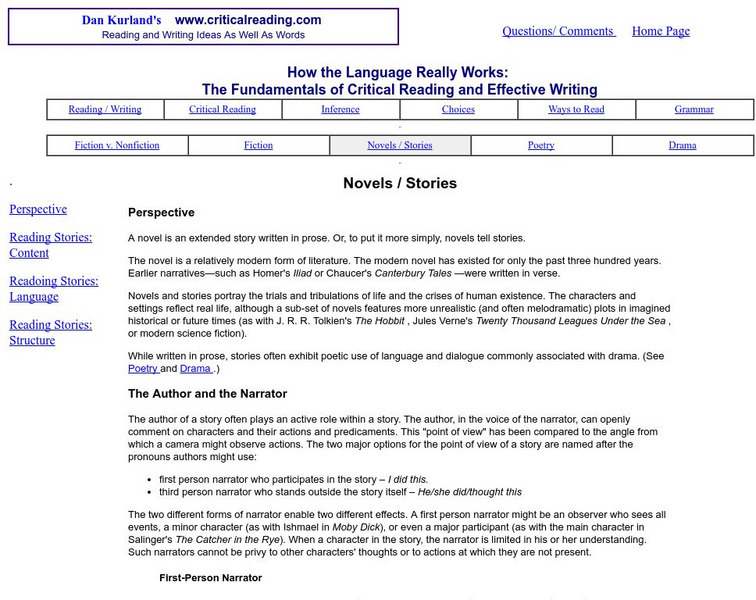

![Holt, Rinehart and Winston: Elements of Literature: The Short Story [Pdf] Unit Plan Holt, Rinehart and Winston: Elements of Literature: The Short Story [Pdf] Unit Plan](http://content.lessonplanet.com/resources/thumbnails/410057/large/bwluav9tywdpy2symdiwmduymc03ode4lte1bw5wdgouanbn.jpg?1589985144)
